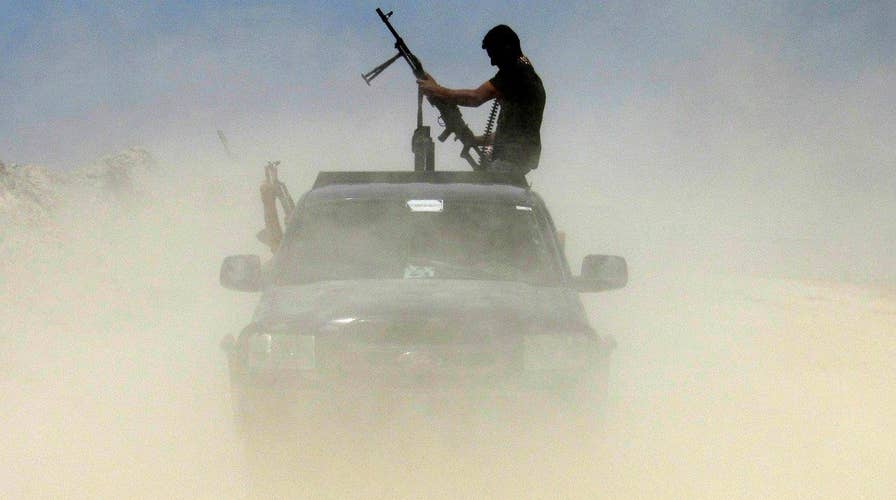Iraqi troops battle ISIS militants in bid to retake Fallujah
John Huddy reports from Jerusalem
BAGHDAD – Clashes between Iraqi government forces and the Islamic State group outside the city of Fallujah briefly subsided on Tuesday, the second day of a large-scale military operation to drive militants out of their key stronghold west of Baghdad.
Backed by U.S.-led coalition airstrikes and paramilitary troops, mostly Shiite militias, Iraqi forces launched the offensive on Sunday. The push to take Fallujah is expected to be a challenge for Iraq's struggling security forces due to defenses put up by the militants and the thousands of civilians who remain there. ISIS has held the city for more than two years.
In nearby Garma, Mayor Ahmed al-Halbosi said engineering teams were clearing booby traps from houses and government buildings on Tuesday — a day after capturing most of the town. Garma is just east of Fallujah and is considered a main supply line for ISIS.
Col. Mahmoud al-Mardhi, in charge of paramilitary forces, said they were still encountering pockets of resistance in Garma outskirts, adding that they killed at least six militants on Tuesday holed up in buildings. He said Fallujah is now completely isolated.
According to the U.S.-led coalition and the United Nations, there are about 60,000 to 100,000 civilians remaining in Fallujah, down from more than 250,000 people in past years. ISIS previously has used civilians as human shields, forcing families to move with the fighters as they retreat from advancing forces and coalition airstrikes, but many Iraqis are suspicious of the civilians who have not fled, assuming many of them are ISIS sympathizers.
Alarmed by the intense fighting, the U.N. and non-governmental organizations expressed concern about the fate of civilians inside Fallujah, calling on warring parties to open safe corridors for them to leave.
On Tuesday, the Norwegian Refugee Council Iraq Director, Nasr Muflahi, said there was no sign yet that trapped families were able to flee, warning that they "now risk being caught in the crossfire."
"All parties to this conflict have to provide safe exits for civilians," Muflahi added.
His concerns echoed those by U.N. Secretary-General Ban Ki-moon the day before. The U.N. spokesman Stephane Dujarric said there is "a great risk" to about 50,000 civilians estimated by the U.N. to still be in Fallujah, underlining the necessity of having "some safe corridors that they could use."
Fallujah, about 40 miles west of Baghdad, was the first city to fall to ISIS in January 2014. During an insurgency waged by ISIS' predecessor, Al Qaeda in Iraq, Fallujah was the scene of some of the bloodiest urban combat with American forces. In 2004, more than 100 U.S. troops died and another 1,000 were wounded fighting insurgents in house-to-house battles.
ISIS extremists still control significant areas in northern and western Iraq, including the country's second-largest city of Mosul. The group declared an Islamic caliphate on the territory it holds in Iraq and Syria and at the height of its power was estimated to hold nearly a third of each country.









































